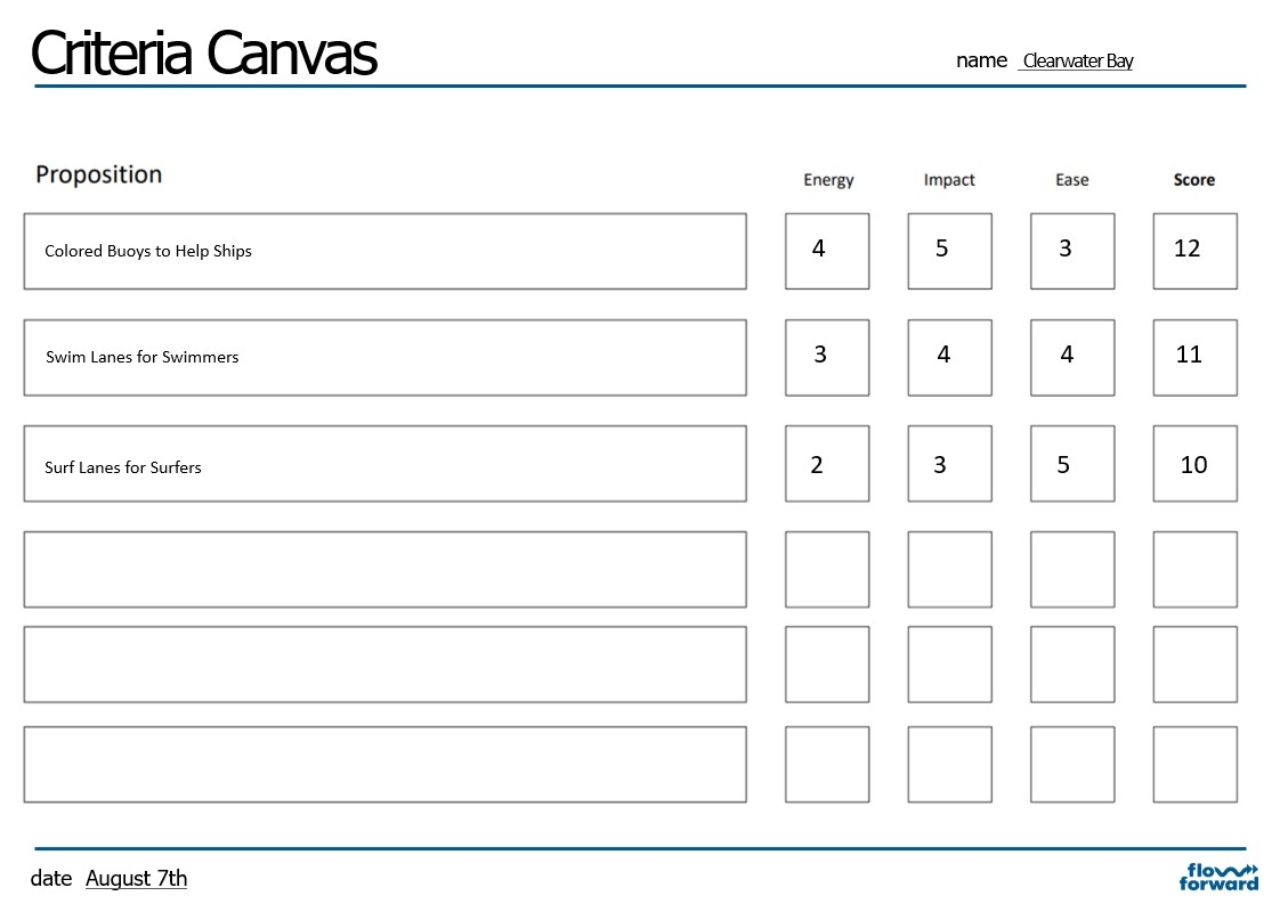Criteria Canvas

The tool is valuable if you are looking for a structured, collaborative approach to evaluate. By rating criteria on energy, impact, and ease, and calculating a final score, teams can prioritize effectively and make informed decisions at every stage of the project. To be able to start this tool, you must be ready to discuss and refine criteria collaboratively.
Tips for use
You can use the tool both Individually for personal clarity and planning as in groups for collaborative evaluation and decision making. To start with the tool, you need to print out the canvas and assign a facilitator to guide the discussion (especially for group use).
How to use
To use this tool, you need to Include all relevant stakeholders, ensuring diverse perspectives.
Step 1: Introduce the Criteria Canvas
Explain the purpose of the Criteria Canvas: to evaluate multiple propositions based on energy, impact, and ease, and to prioritize them. Outline the process and what you aim to achieve in the meeting.
Step 2: Brainstorm Propositions
Ask stakeholders to write down their propositions on sticky notes (one proposition per note). Place all the sticky notes on the whiteboard or paper.
Step 3: Explain Rating Categories
Describe the three rating categories:
• Energy: The amount of effort and resources required to implement the proposition (rate 1-5, where 1 is low and 5 is high).
• Impact: The potential positive effect on the project or organization (rate 1-5, where 1 is low and 5 is high).
• Ease: The simplicity and feasibility of implementation (rate 1-5, where 1 is difficult and 5 is easy).
Step 4: Rate Each Proposition
As a group, discuss and rate each proposition on energy, impact, and ease. Write the ratings on the corresponding sticky note. Ensure everyone’s input is considered during the discussion.
Step 5: Calculate the Final Score
Add the ratings for energy, impact, and ease to get a final score for each proposition. Write the final score on each sticky note.
Step 6: Prioritize Propositions
Arrange the sticky notes in order of their final scores, from highest to lowest.
Discuss the rankings and ensure consensus on the prioritization.
Step 7: Determine who will be responsible
For further evaluating or implementing each of the top-priority propositions, note the responsible team members next to the relevant propositions.
Step 8: Schedule follow-up meetings to review progress and re-evaluate propositions as needed
Adjust and iterate the criteria and propositions based on new insights and developments.
In the fictional case of Clearwater Bay, we will further explain how the tool works.